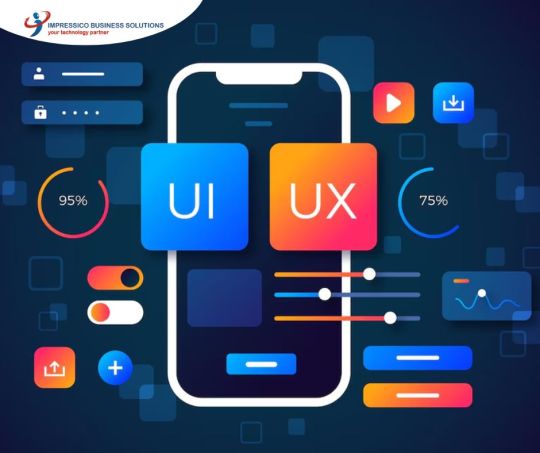#Native App Development Company
Explore tagged Tumblr posts
Text

Best Native App Development Company – Search n Play
Choose the best native app development company—Search n Play. We create secure, scalable apps tailored to your goals. Book a free strategy call now.
native app development company
0 notes
Text
#android app development services#ios app development services#hire ios developers#hire ios app developer#native app development company
0 notes
Text
youtube
#native american#native art#native ass#native app development services#native app development company#Youtube
0 notes
Text

Impressico Business Solutions is a leading Native App Development Company, specializing in high-performance, platform-specific mobile applications. Their expert developers create seamless, scalable, and user-friendly apps for iOS and Android, ensuring superior performance and user experience. Partner with them for innovative, reliable, and future-ready native app development solutions.
0 notes
Text
Take your app to the next level with top-tier React Native developers. Our experts bring years of experience in building high-quality, cross-platform mobile applications tailored to your needs. Whether you're launching a startup or scaling an existing app, our React Native developers ensure seamless performance and timely delivery. Get access to the best talent to make your project a success.
#react native apps#react native developer#react native developers#react native#react native app#native app development company
1 note
·
View note
Text
Custom Native App Development Company in India
Looking for a reliable Native App Development Company? Mobulous Technologies delivers high-quality, performance-driven native apps tailored to your specific business needs. Our expert developers ensure your app is optimized for superior functionality and user experience. Contact us today to start your project!
#hire native app developer#native app developer near me#native app development company#native app development company in noida#native apps#react native app development#top native app development company in india#top native app development companies in india
1 note
·
View note
Text
Discover how Impressico Business Solutions' Native App Development Services deliver tailored, high-performance mobile solutions for iOS and Android. Partner with them for end-to-end application development, ensuring secure, scalable, and user-friendly apps that meet your business needs and drive growth. Explore innovative native app solutions with Impressico today.
#Native App Development Company#Native App Development Services#Hybrid App Development Company#Hybrid Application Development
0 notes
Text
Leading Native App Development Company | Mobulous Technologies
Mobulous Technologies is a top-rated native app development company, providing custom mobile app solutions that deliver a seamless user experience. Our skilled developers specialize in building high-performance native apps for both iOS and Android platforms, ensuring speed, security, and reliability. Partner with Mobulous Technologies to create a powerful native app tailored to your business needs.
#native app development#native app development company#custom mobile apps#iOS native app development#Android native app development
0 notes
Text
How to Choose the Right Tech Stack for Your App

Selecting the right tech stack is a critical decision when developing a mobile app. The tech stack comprises the programming languages, frameworks, tools, and platforms that will shape your app’s functionality, performance, scalability, and maintenance. In this guide, we will explore the key considerations to help you choose the right tech stack for your app.
Understand Your Project Requirements: Before diving into the tech stack selection process, it is crucial to have a clear understanding of your project requirements. Consider factors such as the app’s purpose, target audience, desired features, scalability needs, and budget. This understanding will guide you in choosing technologies that align with your project goals.
Evaluate Developer Skills and Expertise: Assess the skills and expertise of your development team. Consider their familiarity with different programming languages, frameworks, and tools. Choosing a tech stack that aligns with your team’s expertise will enhance productivity, reduce development time, and ensure a higher-quality end product. If your team lacks expertise in a particular technology, consider investing in training or hiring developers with the required skills.
Consider Platform Compatibility: Decide whether you want to develop a native, hybrid, or cross-platform app. Native apps are built specifically for a single platform (e.g., iOS or Android) using platform-specific languages (Swift/Objective-C for iOS, Java/Kotlin for Android). Hybrid apps use web technologies (HTML, CSS, JavaScript) wrapped in a native container. Cross-platform frameworks (React Native, Flutter) allow you to build apps that run on multiple platforms using a single codebase. Consider the pros and cons of each approach and choose the one that best suits your project requirements.
Research and Test: Thoroughly research and evaluate different technologies and frameworks that are suitable for your project. Consider factors such as community support, documentation, performance, security, and scalability. Building a minimum viable product (MVP) or a prototype using the selected tech stack can help you assess its capabilities and suitability before committing to a full-scale development.
Conclusion:
Choosing the right tech stack for your mobile app is a crucial decision that can significantly impact its success. By understanding your project requirements, evaluating developer skills, considering platform compatibility, and conducting thorough research and testing, you can make an informed decision. Remember, the right tech stack should align with your project goals, enhance development efficiency, and ensure a high-quality, scalable, and maintainable app. Take the time to choose wisely, and set your app on the path to success.
0 notes
Text
Benefits of iOS & Android Native App Development

The idea of requiring different languages for each platform on which you plan to launch apps sounds time-consuming at best & dumb at worst. Yet, this is the path taken by many developers and tech companies. Let’s go over the benefits of Native app development.
Click here to know more: https://www.marsdevs.com/
0 notes
Text
Best Native App Development Company – Search n Play
Choose the best native app development company—Search n Play. We create secure, scalable apps tailored to your goals. Book a free strategy call now.
0 notes
Text
#android app development services#ios app development services#hire ios developers#hire ios app developer#native app development company
0 notes
Text
From Idea to App Store: Navigating the Native App Development Journey
In today’s fast-paced digital landscape, having a mobile presence is imperative for businesses looking to stay competitive. Native mobile app development plays a pivotal role in this endeavor, offering seamless, high-performance applications tailored to specific operating systems like iOS and Android. For businesses seeking top-tier solutions, partnering with a Native Mobile App Development…

View On WordPress
#Native app development company#Native app development services#Native application development company#Native application development services#Native mobile app development company#Native mobile app development company in USA#Native mobile app development services
0 notes
Text

Discover unparalleled native app development services that transform your business ideas into robust, scalable mobile applications. Their expert team leverages cutting-edge technology and agile methodologies to deliver innovative solutions. Partner with Impressico Business Solutions for end-to-end support, ensuring exceptional performance, security, and seamless user experiences across diverse digital platforms globally.
#Native App Development Company#Native App Development Services#Native App Development#NativeAppDevelopment#NativeApp
0 notes
Text
Native App Development Made Easy: The Ultimate Beginner's Guide

What is Native app development?
Native app development refers to the process of creating mobile applications that are specifically designed and developed for a particular platform, such as iOS or Android.
Unlike web apps or hybrid apps, native apps are built using platform-specific programming languages, SDKs, and frameworks, allowing them to tap into the native features and functionalities of the operating system. This approach enables developers to optimize performance, deliver seamless user experiences, and leverage the full potential of the platform, resulting in highly responsive and immersive applications.
For more details: Native App Development Made Easy: The Ultimate Beginner's Guide
0 notes
Text
Hybrid Vs Native App Development Difference (2023)

The COVID-19 pandemic forced a major shift in consumer behavior towards mobile apps, and this shift seems to be permanent. In the last two years, the average time spent on mobile apps has increased by over 50% and consumers in over a dozen markets worldwide are spending at least 5 hours a day using mobile apps. In 2023, the global network of mobile apps is set to generate over $526 billion in revenue. To keep up with this cataclysmic shift, businesses of all sizes are being forced to enter the lucrative world of apps as fast as possible. Hybrid vs Native App Development Difference naturally plays a crucial role in determining the approach businesses should take when venturing into the mobile app domain.
Investing in App Development
In the post-pandemic world, millions of businesses across the world have jumped onto the bandwagon of investing in custom app development. Unfortunately, many are failing horribly. The main reason behind their failures is their inability to identify the type of app they need to build to best suit their target users’ needs.
When businesses are unable to perform this key function, they fail to give correct briefings to their app development teams. The result is a laundry list of apps that do not deliver the expected results. How can this fundamental error be corrected? Before investing a cent into app development, business leaders first need to decide a few things:
What kind of mobile apps do they want to develop for their target users?
Which devices do they want to launch their apps on (mobiles, wearable tech, tabs)?
Which type of device OS (operating system) their respective IT environments are prepared to support?
The two main mobile OS platforms in the world are Google’s Android & Apple’s iOS. So, ultimately all three of these decisions boil down to one simple question. Which type of mobile app development do you want to invest in, native or hybrid?
What’s the difference between native and hybrid app development and why is it so important for app makers to choose either? Let’s compare both native vs hybrid app development practices in detail to answer these questions.
Hybrid Vs Native App Development Difference – Let’s Discuss
What is Native App Development?

A native app is a smartphone app developed explicitly for a specific mobile operating system. For example, Instagram was initially developed as a native app only for iOS in 2010. It was later acquired by Facebook in 2013 and only then it became a hybrid app that was available on both iOS and Android devices. Other examples of hybrid apps that started off as native apps include Uber, LinkedIn, Twitter, and Airbnb. These apps were developed within mature ecosystems.
They were built per the technical and user-experience guidelines of their native operating systems. That’s why, in these apps, in-app interactions are typically smoother and they feel more consistent. Native apps are also designed to access and use the devices’ built-in features like GPS, camera, etc. On top of that, native apps are designed to fit the screen of their native devices.
All of these elements make well-designed native apps highly enjoyable to use. However, native app development comes with major restrictions. For e.g., investing in iOS native app development means that your app will only work on Apple devices and not on Android devices. Most iOS apps are developed using Swift-C & Objective whereas JavaScript, HTML5, or CSS are used for developing most Android apps.
If you’ve invested exclusively in iOS native app development, you only have access to Swift-C & Objective developers. If you want your app to appear on billions of Android devices across the world, you’ll need to invest in separate Android-native app development. Sounds expensive and time-consuming, right? Well, you can simply avoid these problems by investing in hybrid app development from the start.
What are Hybrid Apps?

A hybrid app is an app built using simple web frameworks like JavaScript, HTML5, or CSS. This app can then get packaged into a native app using a framework like Ionic or Apache. HTML5 and JavaScript are basic web development tools and at their core hybrid apps are websites wrapped in native app containers. Hybrid app development has become extremely popular in recent years, thanks to the never-ending demand for business apps.
For app developers, creating apps for multiple app markets using a single unified codebase and a simple programming language like HTML5 or CSS is a much easier prospect than developing an Android-only app using Java. It’s also a much less expensive prospect. Why write code for apps that are limited to just one market when you can target multiple markets by taking the hybrid route? Consider the following example:
To build iOS apps, a developer has to be proficient at using Swift-C & Objective. In the US, the average iOS developer’s salary is over $145,000/year.
In comparison, a full-stack web developer who is proficient in programming languages like HTML, CSS, and JavaScript earns an average of $67,174/year.
Hybrid apps are cheaper to build. With the right developers, businesses can combine different elements from other mobile app development techniques and create high-quality hybrid apps that meet their target users’ needs both on iOS and Android. However, not all businesses get this mix right.
A major flaw of hybrid apps in general is that they don’t always look and function well on all platforms. To create apps for multiple platforms, developers need to have a deep understanding of the difference between native and hybrid app development environments. They also need to learn the subtle differences between designing and testing iOS and Android apps. Only then can they achieve what they set out to achieve by selecting hybrid app development over native at the start: minimizing development time, resources, & effort.
So, how difficult is it for developers to master the art of creating HTML5 or CSS web apps and then scaling them for different markets? Let’s take an example of some of the best app developers in the world at Meta (formerly known as Facebook).
According to the company’s CEO Mark Zuckerberg, one of the biggest mistakes in his company’s early history was focusing too much on HTML5 apps and too less on the native apps.
Since then, Zuckerberg has corrected his company’s app development course by investing heavily in native iOS and Android apps.
If Meta can get it wrong, any company can get it wrong. But, what about the companies that need to scale? What about the brands that want to target multiple app markets for a lesser price? According to recent estimates, native app development projects that target either the Android or iOS market cost $40,000 to $1,00,000+ on average.
In comparison, a hybrid approach costs only $20,000 to $60,000+. Should businesses target more platforms for a lesser price or should they invest in native apps that allow users to enjoy the full functionalities of their smart devices? To answer this question, let’s compare the PROS and CONS of native vs hybrid app development.

Pros of Native Mobile App Development
Standardized Development Kits
Native app developers have easy access to a variety of standardized app development kits. These kits contain all UI components/elements that are specific to the native approach in question. For instance, if you’re building an Android-specific app, you’ll find many standardized Java kits that include all UI elements of standard Android apps.
Access to Native Device Features
Native apps can easily access and utilize built-in device features like the camera, GPS navigation, etc. They’re designed to increase interactivity between different features on devices.
Memorable user experiences
Native apps tend to run faster as they’re built to suit device parameters accurately.
Faster approvals
Native apps get published at faster speeds because they’re designed to meet the specific design guidelines of specific app environments.
Cons of Native Mobile App Development
Each new platform requires additional costs for app maintenance, updates, etc.
Native apps carry a higher burden of passing the verification stages on app store platforms.
It is very hard to create consistent versions of native apps for other platforms. If app updates aren’t synchronized on time, users of the app on a specific platform may experience glitches, support problems, etc.
Needs investments in API development.
Pros of Hybrid Mobile App Development

Cutting development time short.
No heavy burden of meeting strict app store regulations.
Doesn’t require high-level knowledge from programmers.
Hiring hybrid app developers is much easier and cheaper than hiring native app developers.
No need to invest in API development as it’s all conducted via the web.
Since only one piece of code is created to make the app function on multiple platforms, managing, updating, and improving the app is much easier.
Cons of Hybrid Mobile App Development
Hybrid app developers target multiple app markets by building additional layers between the platforms and their source codes. Hence, hybrid apps often deliver poor performances on one or more platforms.
Limited native functionality. Hybrid apps don’t have access to all the native features in devices (camera, GPS, etc.)
Hybrid apps are more likely to experience speed problems.
Hybrid apps do not support offline mode.
Once a hybrid app is developed, scaling it for additional devices is very hard. The more app markets you want to target, the costlier the project will become.
Native Vs Hybrid App Development: Choosing One of the Two
When we compare the advantages and disadvantages of native vs hybrid app development, the difference between native and hybrid app development is quite apparent. That’s why the native vs hybrid app development discussion is still relevant in 2023. Choosing a hybrid approach will certainly save your company time, money, and effort in the short term.
Speed-to-market, unified source code, easy updates, & cross-compatible web technologies: these factors, coupled with the lower costs, make hybrid app development seem very appealing. But, in the long run, most hybrid app developers have to work extra hard to address user complaints from multiple app markets by fixing the bugs/glitches in their apps.
Are you ready to take on such risks? Then, go hybrid. If not, stick to native app development and focus on delivering unforgettable user experiences, not the bottom line. Whichever one you choose, always be cognizant of the trade-offs that come with both these app development approaches.
Want to know more about this topic or other related topics visit our Blog Page
#hybrid app development#native app development company#app development#mobile app developers#mobile app development
0 notes